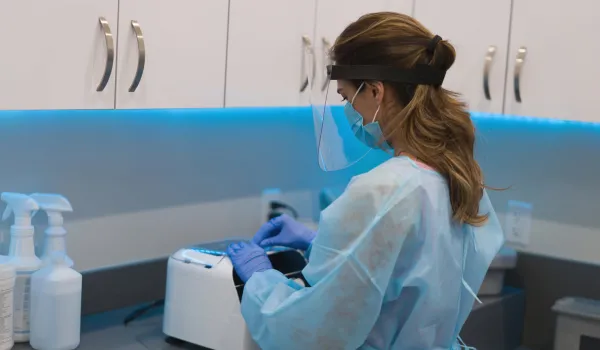Concorde Staff

If there's one universal truth - across cultures and time zones - it's that kids hate to go to the dentist, right? Well, we're here to calibrate you!
According to a study published in the European Journal of Dentistry in 2011, a survey of 583 school-aged children ages 9-12 found that only 12 percent said they were afraid of going to the dentist while 64 percent said they liked it. The most commonly cited reasons for being afraid of dental visits were local anesthesia and having a tooth pulled. Interestingly, 90 percent preferred that the dentist wear a white coat.
This study doesn't reflect the attitudes of younger children, and one might assume that the percentage of those with a fear of the dentist would be somewhat higher, though not necessarily greatly so. But the reality is if you're training to be a dental assistant or a dental hygienist, especially if you're specializing in the pediatric field, you're going to be seeing some frightened kids.
This is where your compassion can help. Learning how to manage the situation effectively can make the difference between not only a pleasant experience and a disaster, but will also shape attitudes towards dental care that will last a lifetime.
4 TECHNIQUES FOR MANAGING ANXIETY
Luckily, lots of other dental professionals have gone through this before you, and they're more than happy to share their experiences and lessons learned. Additionally, the American Academy of Pediatric Dentistry has some recommendations. These include:
- Explain the procedure. Kids are afraid of the unknown, and they're much more likely to relax if they know what to expect. Tell them in advance what you're going to do and how it will feel using age-appropriate language and communication techniques. Use visual examples rather than verbal language, for example. Don't tell them it won't hurt if you know there might be some discomfort.
- Use distraction. Getting the child's mind off of the situation can be useful. Some dentists even keep some small toys handy to give the child during the procedure, partly as a distraction, and partly as a reward for cooperation. Asking them about a recent event in their life, like a birthday party or a trip to the zoo, can keep them occupied or give them a task to perform, like counting backward from 100. They can't talk during the procedure, but it will help to keep their mind busy.
- Practice positive reinforcement. Praise the child during the procedure for their good behavior, and use small rewards as mentioned above.
- Ask the parent to help. Obviously having the child's parent in the room will help to lessen anxiety, generally.
POSITIVE ATTITUDES FOR THE FUTURE
Using these methods to calm a child's fears not only helps to control the immediate situation, but it helps in cultivating positive attitudes for the future. It's important that the procedure is completed, regardless of how the child is acting. The actual experience won't be nearly as bad as the child imagines it will be, and they'll remember that the next time they have to make a trip to the dentist.
Practice your best techniques at Concorde Career College. Our career counselors can have you on the track to your new career in health care in no time.

Take The Next Step Towards a Brighter Future
Interested in learning more about our Dental Assistant program? We have a Concorde representative ready to talk about what matters most to you. Get answers about start dates, curriculum, financial aid, scholarships and more!






